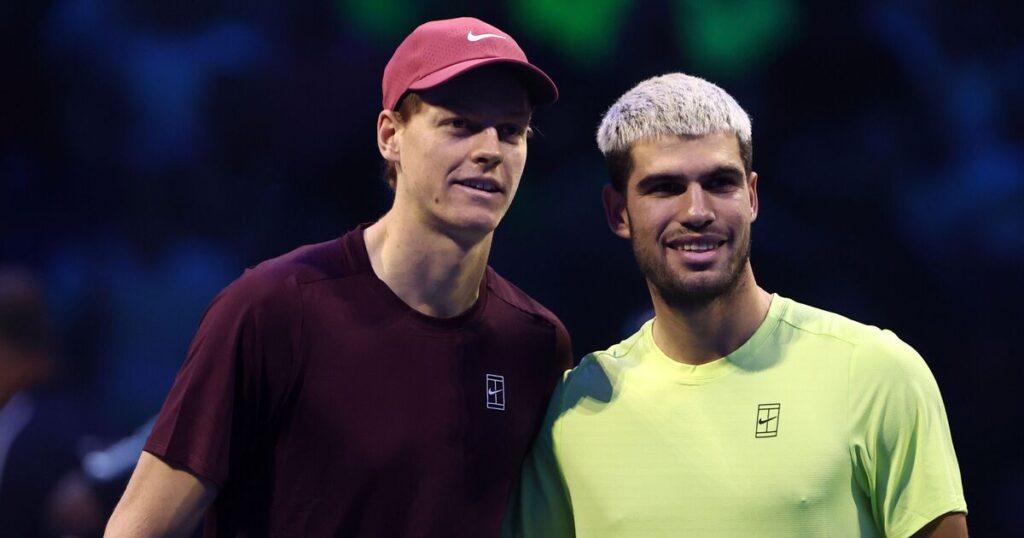Two-time defending champions Italy faced Spain in this year’s Davis Cup final, but neither Jannik sinner neither Carlos Alcaraz represented their team at the Men’s Tennis World Cup. Sinner – who guided Italy to Davis Cup glory in 2023 and 2024 – chose not to participate in finals week this year because he wanted a longer offseason. Alcaraz, for his part, was forced to withdraw a few days before Spain’s first draw, following a muscle injury.
Before the week of the Davis Cup final in Bologna, the two men had also shared their would like to see the team tournament played every two years instead of one year, which makes it even more special and gives the best players the opportunity to compete. But tournament officials say the absences of Sinner and Alcaraz are not just a Davis Cup problem – but rather reflect a broader problem across the tennis circuit.
The vast tennis calendar has been a hot topic in recent years, with Alcaraz among those speaking out on the relentless schedule. And Feliciano Lopez – a retired former world number 12 turned Davis Cup Final 8 tournament director – said: “I think the fact that the best players don’t play in all the best tennis tournaments in the world is something that we all suffer from, in all tournaments throughout the year.
“The calendar is crowded. There are so many tournaments. For them, to participate in all the tournaments, it is very difficult. The Masters 1000 also suffers from the same problem where ultimately Carlos, Sinner, or any other best player in the world, does not play.
“It’s not something related to this competition, to the Davis Cup. It’s something that happens throughout the year in most of the biggest tennis events in the world. I wouldn’t say we’re the only ones who have this problem.
“It’s a major problem in tennis. The fact that there are so many tournaments throughout the calendar, they have to be selective in choosing where they play. Not necessarily just related to the Davis Cup.”
The Davis Cup is an ITF event rather than an ATP event, and any changes to the Davis Cup schedule or format will need to take the tour schedule into account. But ITF leaders appear willing to discuss the format with players.
“There is this false feeling that the best players are not representing their nation. That is not true. Some of the best players who participated in the qualifying round or the second qualifying round did not reach the final. Many top players played,” explained ITF president David Haggerty.
“With Jannik and Carlos it would be good to have them here, their teams compete with the spirit and the strength that they bring to their teammates. Again, I think we can always think about the future.
“We are always ready to make the competition the best it can be. I think that is reflected in the change we made this year with the home and away matches in September, to strengthen the competition, bring it to more countries and have that feeling around the world.”
ITF chief executive Ross Hutchins added: “Carlos was here. He was very, very eager to play. What a season he, Jannik and many others had, but especially these two. He was here, eager to play. He got injured in the final of the Nitto ATP Finals. It’s a real shame for him. Jannik, what a competitor the last two years, two-time defending champion, playing in every matchup possible.
“Of course we value player opinions. Feli and I talk to a lot of players across the board. We listen to a lot of player opinions, but we also talk to a lot of players here who consider these competitions the priority of their whole year.
“As Dave said, a lot of the top players unfortunately didn’t progress after their matches in September and February this year, which had a high turnout.
“Very open to discussion. I really appreciate the players’ input. As Feli said, it’s a broader tennis conversation around this topic. That’s why we’re involved with the Grand Slams, the ATP and the different parties here who understand tennis and want the best outcome for the sport of tennis as a whole.”

